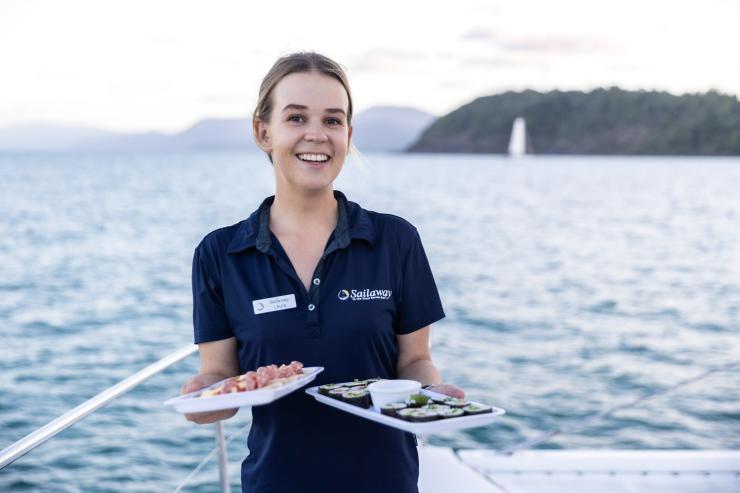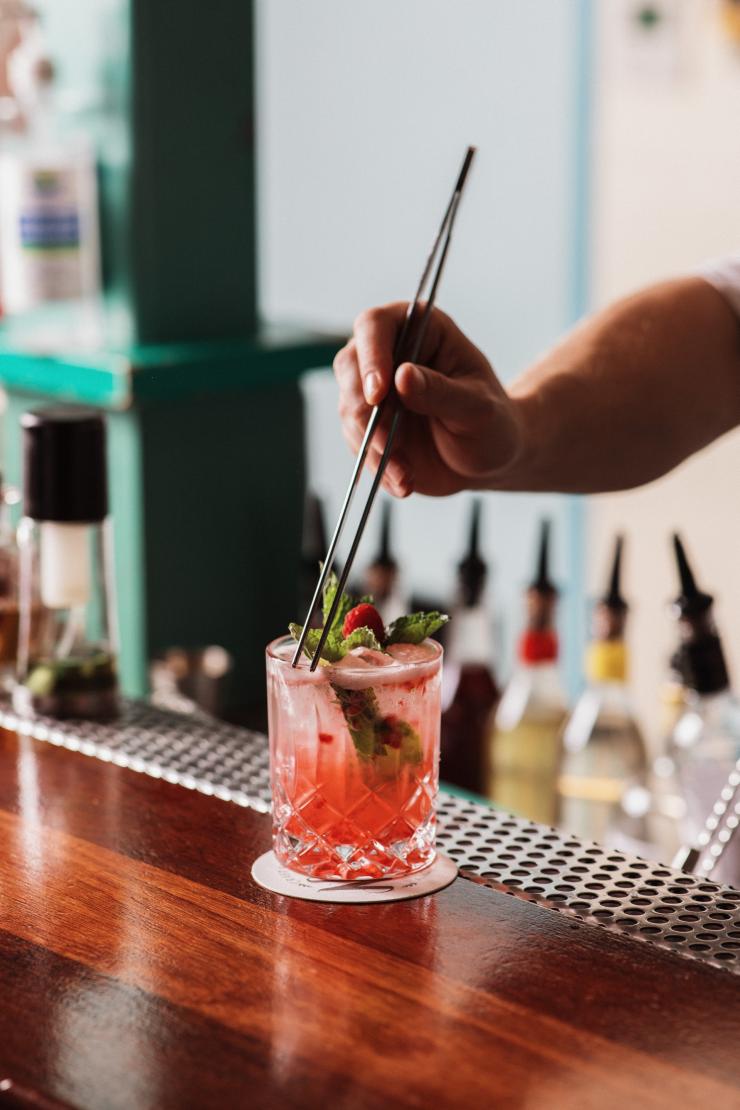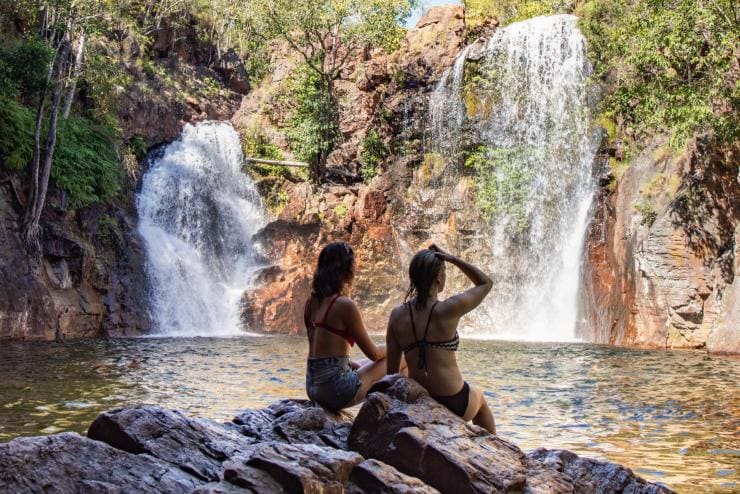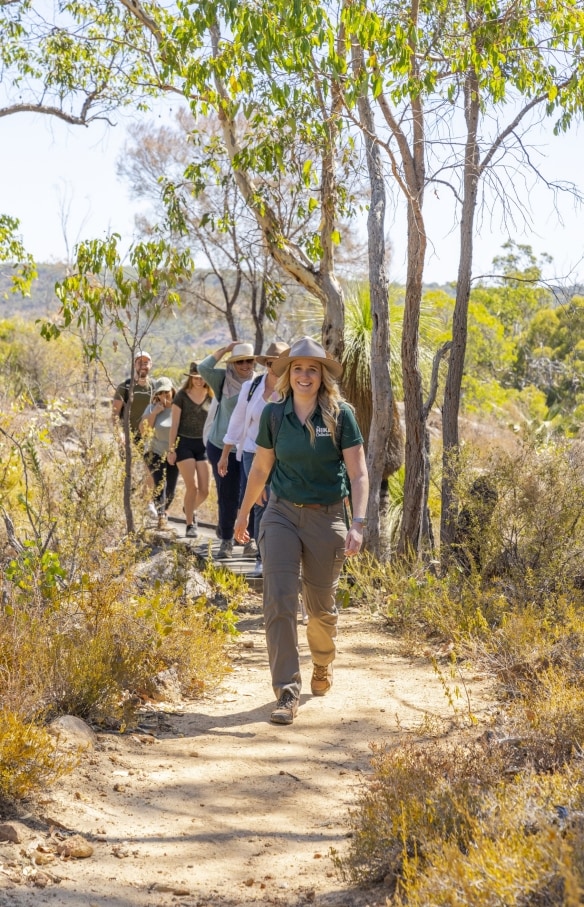
How much can you earn in Australia?
Find out the minimum wage in Australia and how much you can expect to earn when working in these popular jobs for working holiday makers.
Minimum wage in Australia
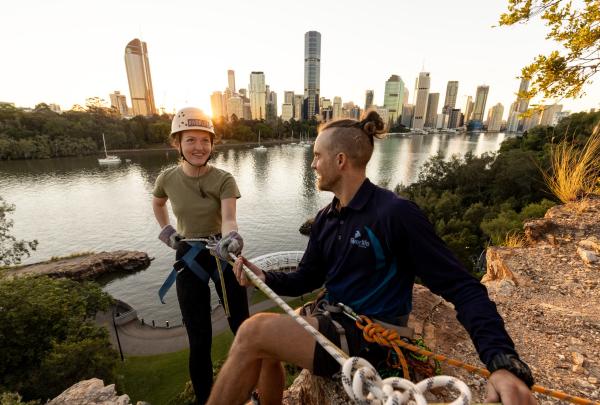
Riverlife, Brisbane, Queensland © Tourism Australia
If you're looking for ways to work and travel, there are endless opportunities Down Under, and many of them pay higher wages than you’ll find in other countries. The national minimum wage is AUD $21.38 per hour or AUD $812.60 per 38-hour week (before tax). Casual employees covered by the national minimum wage also get at least a 25 per cent casual loading added to their pay. Visit the Fair Work Ombudsman website for details on minimum wage and workers' rights.
Jobs in tourism

Ocean Freedom, Cairns, Queensland © Tourism Australia
From working as a deckhand as you sail the Whitsundays to housekeeping at a quaint guest house on Magnetic Island, there are so many jobs in Australia that are perfect for the adventurous at heart. With these types of roles you typically don’t need any specific training or experience; just a good attitude and taste for adventure. In junior tourism roles, your salary will likely start around the minimum wage, but you may receive tips or discounted accommodation in addition to your pay.

Top tip
Check out these helpful job marketplaces to find your dream opportunity.
Jobs in hospitality

La Buvette Drinkery, Adelaide, South Australia © Josie Withers Photography
Responsible Service of Alcohol training with a certified provider is required to serve alcohol in Australia.

Whether you want to spend mornings perfecting your latte art or evenings shaking cocktails, working in hospitality is great for finding a schedule that works for you. You'll get to learn about Australia's amazing food and drink scene while meeting locals and fellow travellers, and many venues pay above minimum wage if you have experience. Some will also throw in tips and discounted meals and you may also be eligible for ‘penalty rates’ when working on weekends or public holidays, which can bump up the figures.
Au pair

Dreamworld, Gold Coast, Queensland © Tourism and Events Queensland
Living with a local family as an au pair is a great way to experience the Aussie lifestyle. You'll get to share meals, learn the local tips and tricks and maybe even join the family on exciting getaways. In Australia, au pairs usually earn a small weekly or monthly stipend in addition to free room, board and daily meals. Your employer may require a Working with Children check, which usually costs around AUD $80 to $125 and a first aid certificate, which will set you back between AUD $70 and $160.
Fruit picker

Oliver’s Taranga, McLaren Vale, South Australia © Meaghan Coles
Fruit picking on Australian farms is a popular gig for travellers – it's a great way to see the beautiful Aussie countryside and it can often count towards eligibility requirements for second and third year Working Holiday visas. One thing fruit picking will give you that many other jobs won’t is the ability to earn money per bin as opposed to per hour. This means your hourly rate is entirely up to how quickly you work. Learn more about how piece rates are calculated here.
Read next
Things to know about travelling Australia on a budget
Receptionist and administrative assistant

Skyrail Rainforest Cableway, Smithfield, Queensland © Tourism and Events Queensland
If you’re looking for a job with a great schedule, reception is an ideal option. Hours usually fall between 9am and 5pm, leaving you plenty of time for a post-work surf in the summer months. Receptionist roles generally pay above the minimum wage depending on your experience. Your hostel might be an easy place to start your search – ask the manager if they could use someone to help out on the desk, or pay a visit to some of Australia's coolest hotels to try your luck.
Construction worker

Felons Brewing Co, Brisbane, Queensland © John Nguyen Photography
Australia’s cities and suburbs are always developing, which means there are plenty of construction jobs to choose from. In addition to plentiful work, construction allows you to move around the country, explore new places and enjoy the outdoors. The average rate for construction work varies depending on your experience, but these types of jobs often offer a daily rate above the minimum wage as well as overtime penalty rates. To get started, you’ll need a valid White Card, which costs less than AUD $50.
For the most up to date information regarding visas and the Working Holiday Maker program, visit the Department of Home Affairs website.
Note: Tourism Australia is not the Australian government authority on pay rates or workers' rights.
The content on this page is for general information purposes only and does not constitute legal advice. Please visit the Fair Work Ombudsman website for complete details on minimum wage and workers' rights in Australia: https://www.fairwork.gov.au


























































































































